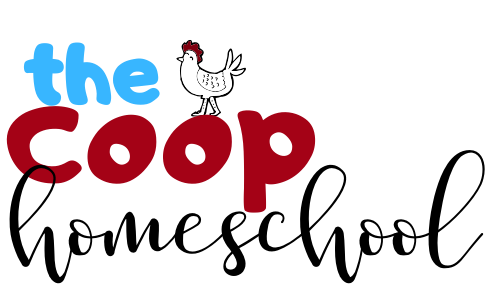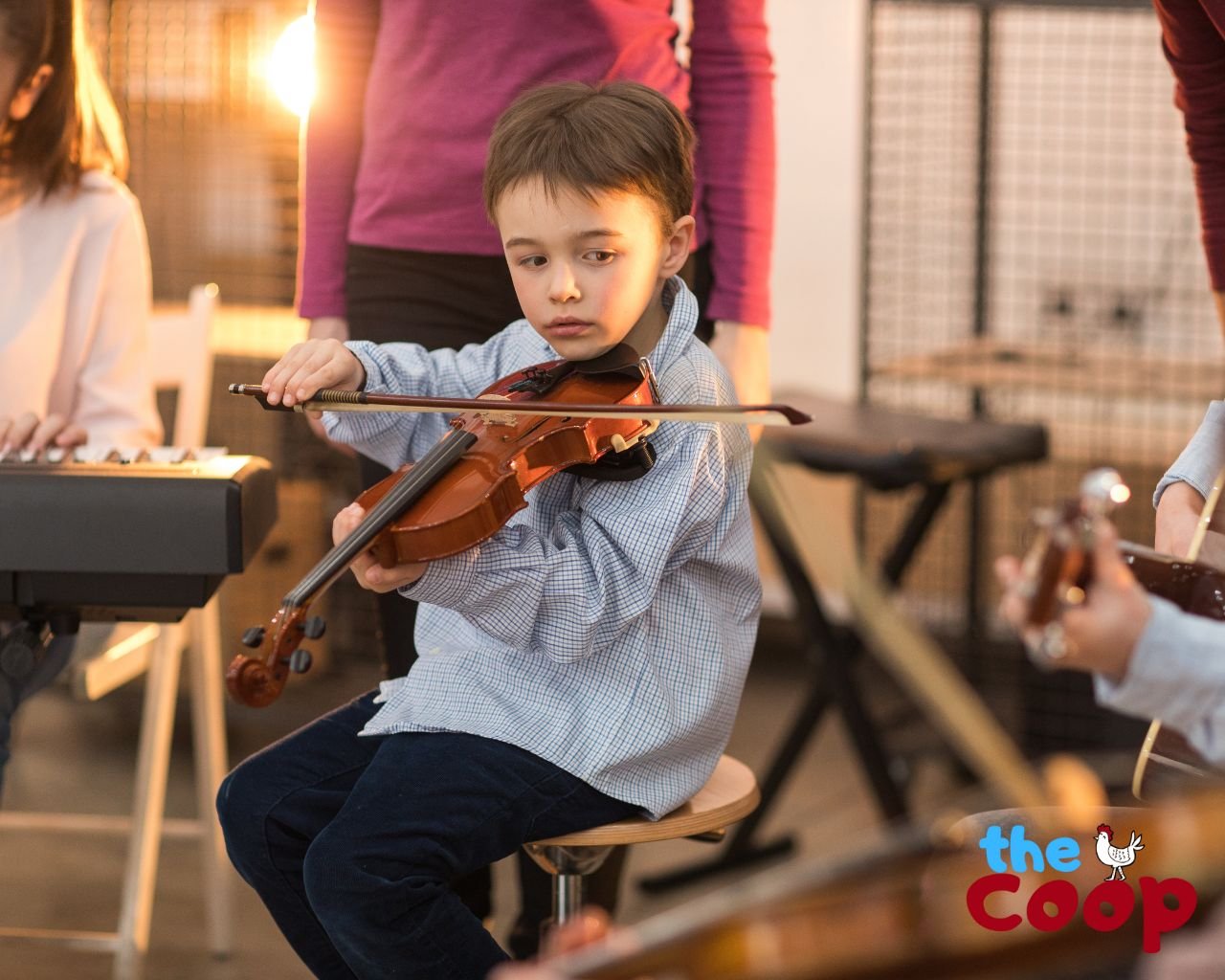Music Education in the Home
Some links may be affiliate links. We may get paid if you buy something or take an action after clicking one of these
At The Coop Homeschool, we consider music education to be a non-negotiable subject in our homes. Music is a core subject, not an extra.
Why is Music Education Important
According to New England Board of Higher Education, elementary music education benefits kids in the following ways:
Enhanced language capabilities
Improved memory
Strengthened hand-eye coordination
Powerful study habits
Teamwork
Heightened mental processing and problem-solving
This article in Psychology Today provides the results of a study of children who have received musical training to have higher levels of gray matter volume in their brains than their counterparts - which is directly tied to improvements auditory processing and comprehension
That same Psychology Today article also states that formal studies have shown that the highest benefit from music education is seen in children who start training before age 7.
The National Association for Music Education adds even more benefits to the list with:
Increased emotional development
Fosters a positive attitude toward imagination and intellectual curiosity
Develops creative thinking
Develops spatial intelligence
Improves self-confidence and sense of achievement
When Should You Start Music Education
At birth! In utero! From the beginning! NOW! Music education offers so many development benefits, that it is never too early to begin with your child. How you look at music education will change as your child gets older. As stated above, children who start music education before age 7 receive the highest benefits, but it is never too late to start learning. We recently interviewed a local music education expert about his thoughts and recommendations on getting kids into music, check it out!
How to Include Music in Your Home
Ages 0-2
Music education at this age should be immersive and play based. Babies and toddles should be encouraged to play on fun instruments like a set of bells or Boomwhackers. Play clapping and tapping games like Pat-a-Cake or clap along to any fun song. We recommend exposing your children to different genres of music, particularly classical and classic children’s songs, nursery rhymes and folktales. One of our favorite artists is Raffi -any other 80s babies out there who was a Baby Beluga grad?
Ages 2-5
Preschoolers will still benefit from the ideas in the 0-2 age range, but now they can expand their exposure and knowledge! This is the perfect time to introduce symphonic stories like Peter and the Wolf (David Bowie is our favorite narrator) and Carnival of the Animals. Introduce children this age to Fantasia and then listen to the classical pieces in the car. We love the Story Orchestra books to introduce children to classical music and basic music theory (we review the books here). If you let your child play on the phone or iPad, Perfect Pitch Toddler Learning is a great app to continue developing their musical ear during this critical phase.
Ages 5-7
At this age, students have the fine motor skill to begin an instrument like the piano or the lap harp. As children show readiness for reading, they also become ready to learn to read music and music notation. If you have a piano or keyboard and have some basic musical knowledge, you can begin to introduce notes on a staff and match with notes on the piano. There are many websites that offer more specifics on including music education in your home, one we recommend is Music in Our Homeschool.
Ages 8+
This is the perfect age to dive into an instrument in group or private lessons. Children can really begin music theory and learning to read music on the staff. Music history and artist studies are a perfect way to incorporate music education into their lives as well. See live music whenever possible. There is something so magical about watching musicians.
How to Outsource Music Education
In Person Lessons
In person lessons tend to be best for children. There are many options that range from free to expensive. Many libraries have music programs for toddlers and preschoolers. These are excellent, free resources to utilize. Many local symphonies offer experiences for children. I highly recommend the Let’s Play Music program that offers small group lessons for children 0-12 years old. My 10 year old went through the program from ages 3-7 before moving into private piano instruction and group ukulele lessons. My 4 year old is currently in the Sound Beginnings class for children 0-4 years old. There are local music studios that can offer groups, semi-private, and private lessons on a variety of instruments. You can also find private instruction from independent teachers.
Virtual Lessons
If 2020 taught us anything, it is that many things can become virtual and still work! Music lessons were no exception. Virtual lessons can be live instruction via ZOOM or another program, or they can be prerecorded and viewed at anytime. A great place to look is on Outschool or similar platform. Music in Our Homeschool offer online lessons as do many local studios. You can supplement your child’s learning with virtual programs like Symphony Storytime from the Oregon Symphony. There are many tutorials and educational content creators on YouTube and many instruments can be learned through apps on digital devices.
There is no better time than now to start your child’s music education. It doesn’t have to be expensive or difficult, but it does have to be intentional. Find what works for your family and keep with it. I don’t hear anyone that regrets learning too much music, but I do hear many people regret quitting.
The Coop Homeschool is a participant in the Amazon Services LLC Associates Program, an affiliate advertising program designed to provide a means for sites to earn advertising fees by advertising and linking to Amazon.com.



